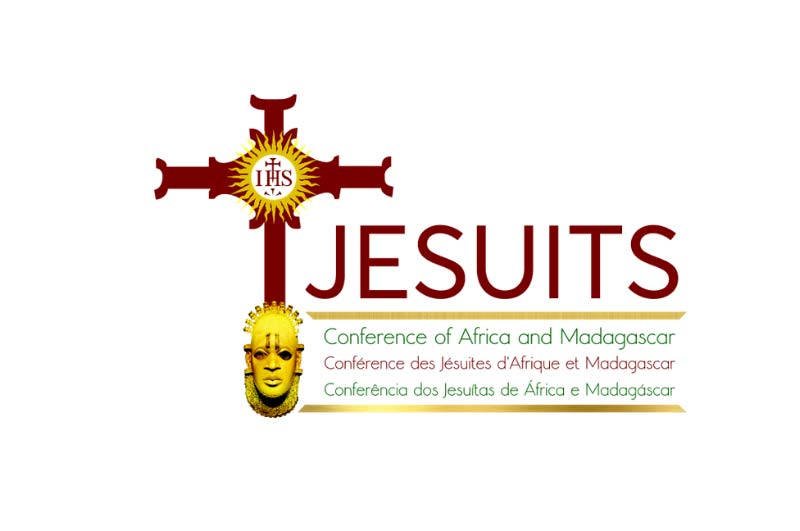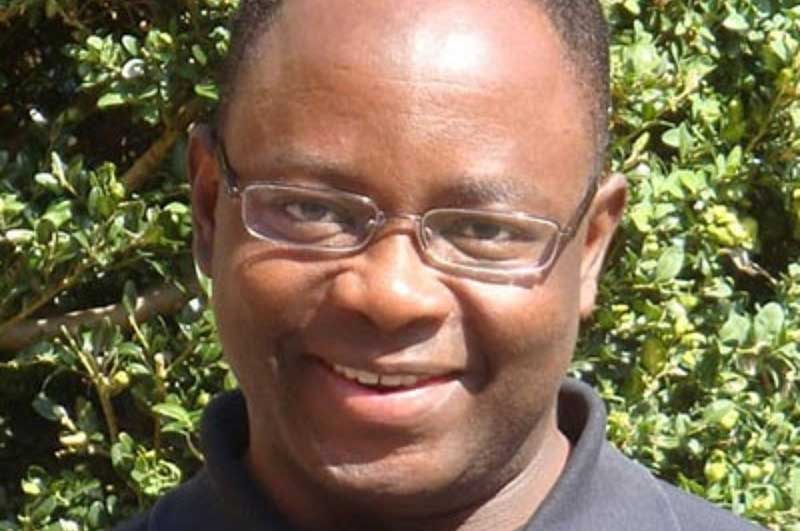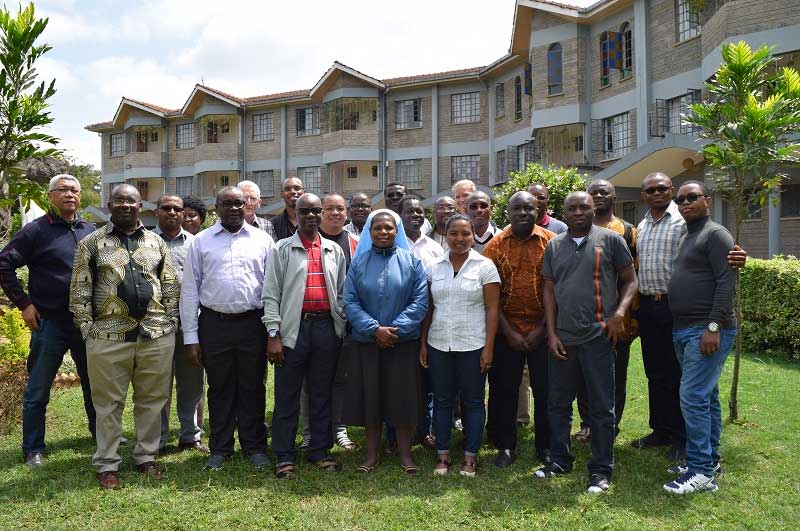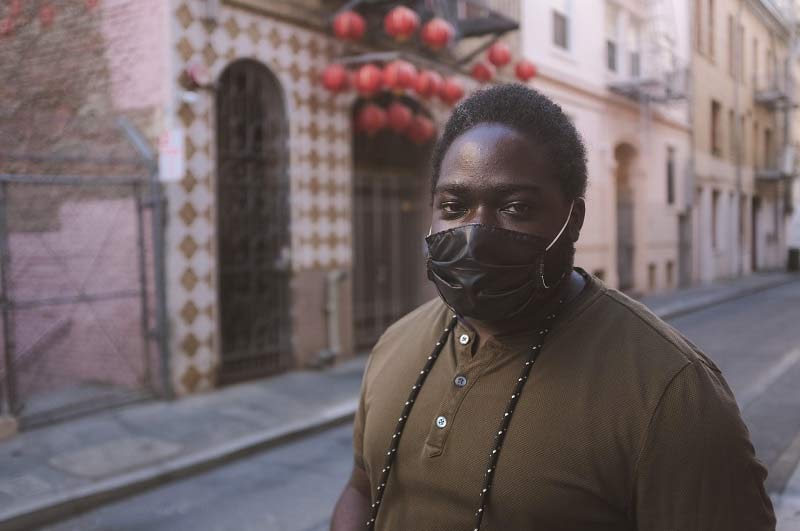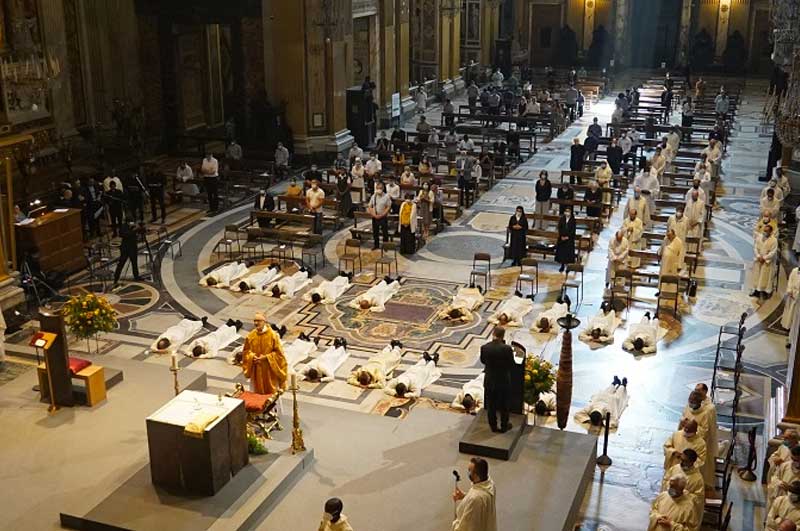


Those who were ordained as deacons are Habyarimana Dominique (RWB), Ngiyembere Ernest (RWB), András Csaba (HUN), D’Souza Ignatius Raul (GOA), Gill Sahil (DEL), Harifidy Joslin Noël (MDG), Rabemanantsoa Zefarinel (MDG), Kambashi Stanislas Mbeshi (ACE), Heine-Geldern Maximilian (ASR), Hruška Petr (BOH), Iacobellis Mariano (EUM), Jackanič Samuel (SVK), Rephin Kamal (KER), Kathiravel Jude Deluxion (SRI), Jeevan James Kudlur Arulappa (KAR), Lobo Lindsay (GOA), Sarkar Eliash (CCU), and Xu Zhenguo (CHN) while those who were ordained as priests are Kambale Kanyali Eric (ACE) and Okun Vyacheslav (PME).
These ordinands were drawn from 15 different countries and 16 provinces of the Society of Jesus.
Three months ago, no one had expected such an event. Usually, the diaconate ordinations take place on Easter Tuesday but the ongoing pandemic ravaging the world required a change of date which warranted also the ordinations of two deacons who had hoped they will be ordained in their different provinces and countries. Thus, the ordinations took place when Italy has eased out its lockdown having recorded more than 30000 fatalities.
Nonetheless, it was a joyful event for all who were there and for many others, who, because of the number restriction, could only join the event online. The event started at 3 pm in the afternoon with the solemn procession of the candidates to be ordained, concelebrants and His Eminence, Cardinal Michael Felix Czerny, the Under-Secretary of the Migrants and Refugees Section of the Dicastery for Promoting Integral Human Development, who was the ordaining prelate.
Father General of the Society of Jesus, Arturo Sosa was one of the concelebrants at this event.
It was a special ordination in many ways. Firstly, it was Cardinal Michael’s first ordination since he became a bishop. Secondly, it combined both priestly and diaconate ordinations. Thirdly, it was witnessed directly by a limited number of persons, mostly Jesuits, in the absence of many family members of the ordinands. Finally, all participants wore protective face masks. Nevertheless, these unique realities did not erode the joy that distinguishes such occasions.
The homily which followed the call of the candidates was profound. Having welcomed family, friends, and all present at the Mass, Cardinal Michael reminded everyone of the changing face of the Church – one that understands the role of the lay faithful as active and necessary. He reminded the candidates that the ministry in the church is not left completely in the hands of ordained clergy but the lay faithful have prominent roles in the ministerial life of the church. Eliciting from the experience of the apostles who had locked themselves into the upper room after the Ascension of Christ, he acknowledged that we too now know what it means to be in lockdown. He stated that our church sometimes is locked in, on itself.
Exhorting the ordinands, he further explained that the church throughout its history coped with new conditions and new challenges. He suggested the practice of discernment as an indisputable help in navigating new conditions and new challenges in our ever-changing world. He concludes his homily by inviting the ordinands to choose what he termed as the uphill path, saying “there is no map for the unknown lands…” thus, “it is necessary to have the courage to be witnesses, to choose the uphill path to the ‘new’ and not to take the downhill path to the ‘safe’”.
The rest of the ceremony went as usual with the choir singing songs from different tongues and nations. While the Cardinal alone laid hands on the candidates for diaconate ordination, the priests followed him in laying hands on the two ordained to the priesthood.

Related Articles
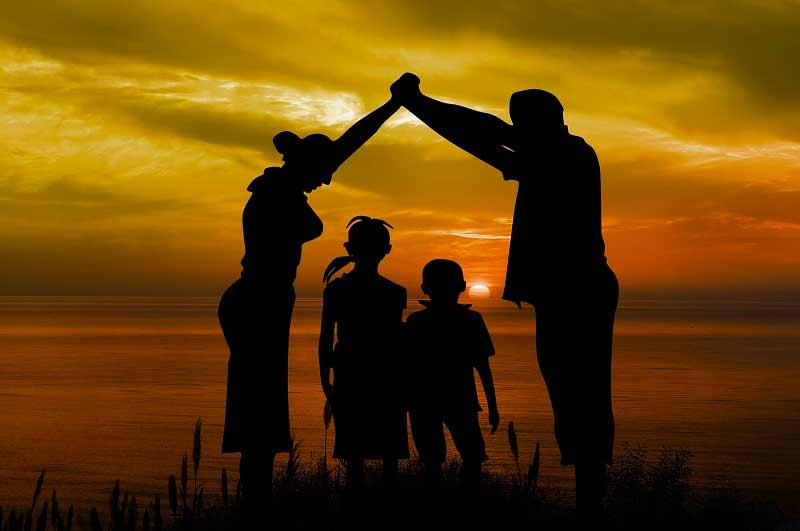
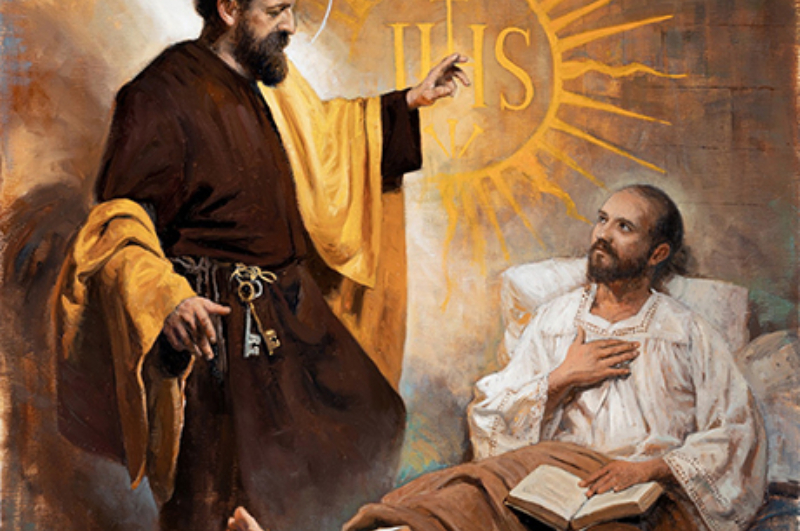
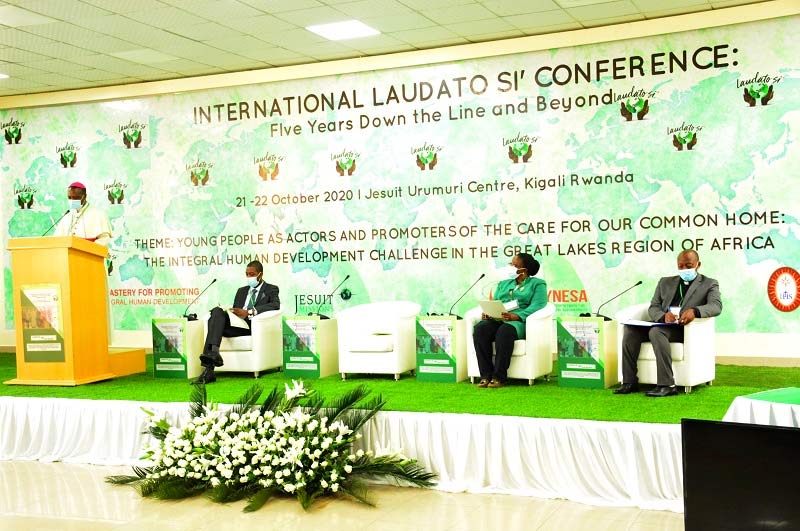
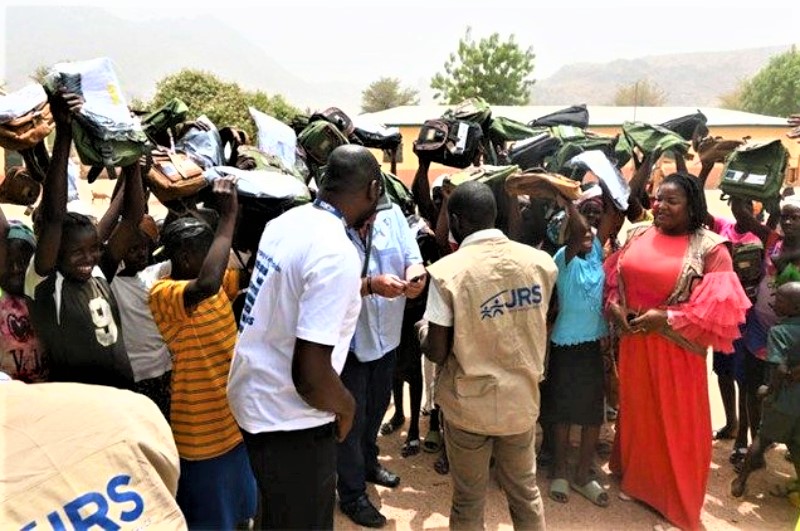
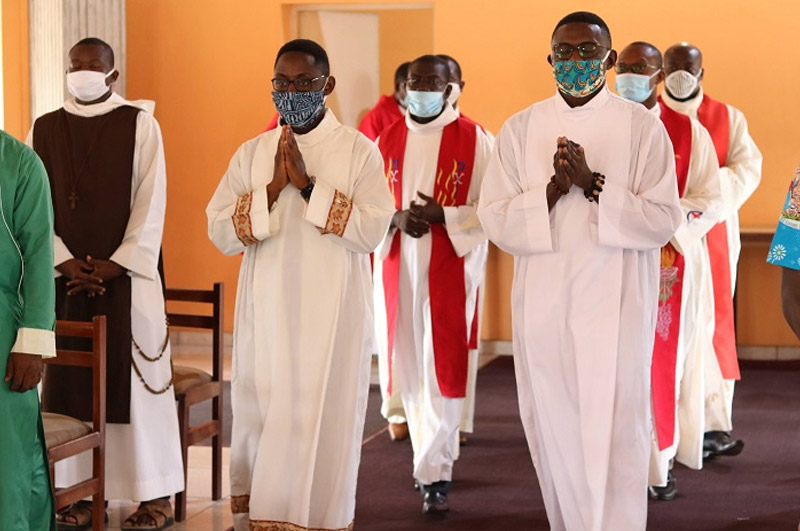
Select Payment Method
Pay by bank transfer
If you wish to make a donation by direct bank transfer please contact Fr Paul Hamill SJ treasurer@jesuits.africa. Fr Paul will get in touch with you about the best method of transfer for you and share account details with you. Donations can be one-off gifts or of any frequency; for example, you might wish to become a regular monthly donor of small amounts; that sort of reliable income can allow for very welcome forward planning in the development of the Society’s works in Africa and Madagascar.
Often it is easier to send a donation to an office within your own country and Fr Paul can advise on how that might be done. In some countries this kind of giving can also be recognised for tax relief and the necessary receipts will be issued.


